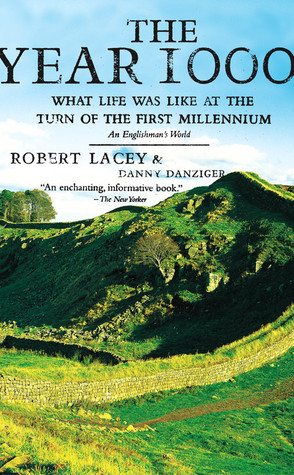Sunday, August 24, 2014
Predictably Irrational - Dan Ariely
Predictably Irrational is a selection of short essays on the ways in which people are influenced by context and cognitive shortcuts (heuristics) to repeatedly make suboptimal choices. This field of economics, called behavioral economics, appears to be just catching up to what cognitive psychologists have been studying for decades. It was nonetheless an interesting book written in an engaging, chatty tone, and cited various studies by Ariely which provide new examples of these "predictably irrational" behaviors from an economic standpoint.
Labels:
capitalism,
economics,
free will,
light reading,
LMB,
nonfiction,
practical advice,
psychology
Saturday, August 23, 2014
Zero History - William Gibson
 Finally finished the last book in Gibson's Blue Ant/Bigend trilogy. Liked this much better than Spook Country, even though the protagonist was again Hollis Henry, whom I do not particularly care for (she is flavorless and lovelorn, snooze).
Finally finished the last book in Gibson's Blue Ant/Bigend trilogy. Liked this much better than Spook Country, even though the protagonist was again Hollis Henry, whom I do not particularly care for (she is flavorless and lovelorn, snooze).In this work, a mysterious line of wondrously simple denim clothing called "Gabriel Hounds" catches Bigend's eye for their innovative use of secrecy in marketing, and he hires Hollis to identify the brand's creator. When Hollis objects she is hardly the best person for this job, suggesting instead someone who might understand the fashion world better, Bigend replies, "But that's exactly it. Because they 'understand all that' they won't find the edge. They won't find the new. And worse, they'll trample on it, inadvertently crush it, beneath a certain mediocrity inherent in professional competence." Bigend is an immensely compelling figure, who prides himself on his ability to always select the exact right person for a given job... makes me wish I could work for someone like him!
Hollis' partner in the search for the Hounds' creator is Bigend's rescued drug addict, hyper-alert and sensitive Russian translator Milgrim, who has been put to work researching military uniform contracts. Of course, working for Bigend means being swept up in his machinations, and this tale follows the ensuing drama.
Always a pleasure to read Gibson, and now I've read his entire works!
The Sprawl Trilogy:
- Neuromancer
- Count Zero
- Mona Lisa Overdrive
- Virtual Light
- Idoru
- All Tomorrow's Parties
Labels:
art,
celebrity,
criminal justice,
design,
detective,
drug culture,
fashion,
fiction,
France,
LMB,
marketing,
mystery,
sci-fi,
secrecy,
technology,
thriller,
william gibson
Friday, August 8, 2014
The Year 1000
This extremely charming book about life in the year 1000 is organized around the 12 months of the year, and the activities that were typical of that month. It is densely packed with fascinating information, and is extremely readable. Many fascinating facts in this book and I highly recommend it to everyone!
The first page of every chapter bears that month's illustration from the Julius Work Calendar, such as these:
The first page of every chapter bears that month's illustration from the Julius Work Calendar, such as these:
Labels:
anthropology,
Countryside,
England,
evolution of culture,
farmers,
farming,
history,
light reading,
LMB,
medicine,
medieval,
middle ages,
nonfiction,
religion
Saturday, August 2, 2014
Quicksilver (The Baroque Cycle, #1) - Neal Stephenson
The first novel in the Baroque cycle is an engaging picture of life in 1600s and 1700s England and America, where former Puritan Daniel Waterhouse is mixing it up with the greatest minds of his day, including Isaac Newton and the young Benjamin Franklin, among others. I don't have much to say about the plot (such as it is), but it is full of interesting philosophical discussions, such as this:
Stephenson's Novels
“And yet viewing several depictions of even an imaginary city, is enlightening in a way," Leibniz said. "Each painter can view the city from only one standpoint at a time, so he will move about the place, and paint it from a hilltop on one side, then a tower on the other, then from a grand intersection in the middle--all in the same canvas. When we look at the canvas, then, we glimpse in a small way how God understands the universe--for he sees it from every point of view at once. By populating the world with so many different minds, each with its own point of view, God gives us a suggestion of what it means to be omniscient.”An interesting book. I've set down The Confusion, which has a different cast of characters and didn't grab me as much, but I may return to it.
Stephenson's Novels
- The Big U (1984)
- Zodiac (1988)
- Snow Crash (1992)
- Interface (1994)
- The Diamond Age: or A Young Lady's Illustrated Primer (1995)
- The Cobweb (1996)
- Cryptonomicon (1999)
- The Baroque Cycle
- Quicksilver (2003), volume I
- The Confusion (2004), volume II
- The System of the World (2004), volume III
- Anathem (2008)
- The Mongoliad (2010–2012)
- Reamde + Colin's review (2011)
Labels:
1600s,
1700s,
aristocracy,
Ben Franklin,
bubonic plague,
England,
fiction,
history,
LMB,
nature,
Neal Stephenson,
philosophy,
plague,
religion,
science
The Martian - Andy Weir
 "Robinson Crusoe in space" is how our bookclub organizer described The Martian, and this is a pretty apt description. Our intrepid astronaut hero Mark Watney is left stranded on Mars when his crew takes him for dead following a terrible accident. Using his botany and mechanical engineering skills, Mark must survive and find a way to let Earth know that he's still alive!
"Robinson Crusoe in space" is how our bookclub organizer described The Martian, and this is a pretty apt description. Our intrepid astronaut hero Mark Watney is left stranded on Mars when his crew takes him for dead following a terrible accident. Using his botany and mechanical engineering skills, Mark must survive and find a way to let Earth know that he's still alive!This fast-paced action thriller is written in a highly loose and conversational style, with entries styled as Mark's log. Recommended for fans of Kim Stanley Robinson, though this is much less literary and more of a beach read. Still fun and thought-provoking!
Also, here's a (kind of) relevant clip from Total Recall:
Labels:
adventure,
astrobiology,
astrophysics,
bookclub,
fiction,
futuristic,
light reading,
LMB,
mars,
outerspace,
sci-fi,
science,
space exploration,
spaceship,
survival,
thriller
Subscribe to:
Comments (Atom)



